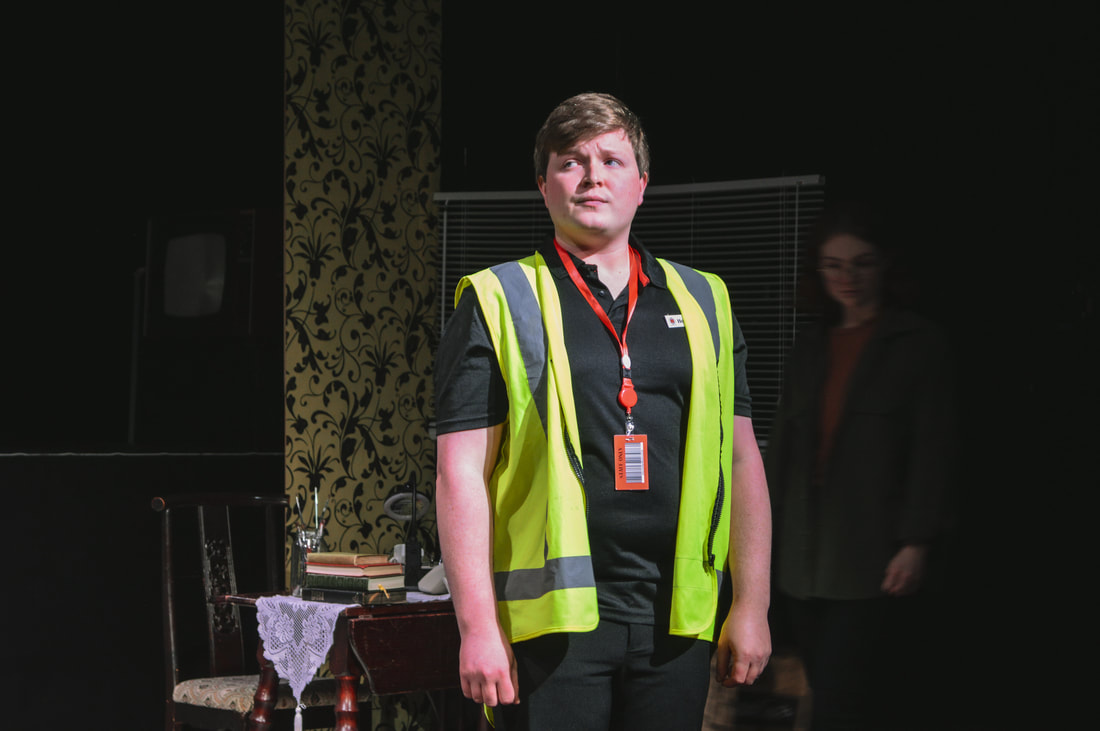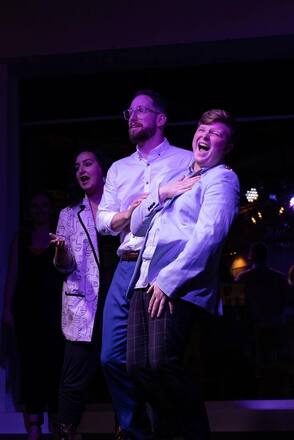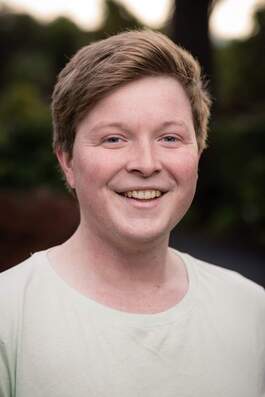Austin Harrison
It’s been a hectic couple of months at Te Herenga Waka–Victoria University of Wellington as the University announced a $33 million deficit, and a proposal to cut 229 full-time staff. Among these proposed cuts comes the gutting of the VUW theatre department, reducing it from 10 academic staff to four, disestablishing a technician and folding the department into English and Creative Communications, from which the department was born 40 years ago and has since created it’s own programme, academia, and made it’s own mark on Aotearoa New Zealand theatre. I’m a VUW theatre grad, and here is why I firmly believe we must #saveVUWtheatre.
There has been a whole heap of excellent commentary about the value of creative and collaborative education, and the importance of the humanities. Pieces such as Dr James Wenley’s excellent piece for Dr James Wenley’s excellent piece for The Big Idea, Dr Nicola Hyland’s selfless and passionate article in The Spinoff, and Dr. Kerryn Palmer’s The Big Idea article which points out the many different ways theatre graduates have gone on to use their skills in the world. I’m here to speak to the impact theatre grads make while doing performance work. I’ve been operating as a freelance theatre practitioner as my primary job since February 2020. In three-and-a-half years I have contributed to over 17,000 arts experiences, and I wouldn’t have had any of the skills and networks that led to these events without my time at Te Herenga Waka.
The majority of this mahi is made up of a predictable trajectory from a theatre graduate. Live shows, theatre-based workshops, and corporate entertainment. These are the things that enrich the lives of Aotearoa New Zealanders and have provided some levity and light through a difficult few years. I’m immensely proud of that contribution, but there’s a whole tranche of my mahi that has an immeasurably important impact: applied performance.
Applied performance encompasses programmes and initiatives that use performance skills outside of an entertainment context. We have lots of these initiatives in Aotearoa New Zealand; I’ve been lucky to see several of them up close.
The majority of this mahi is made up of a predictable trajectory from a theatre graduate. Live shows, theatre-based workshops, and corporate entertainment. These are the things that enrich the lives of Aotearoa New Zealanders and have provided some levity and light through a difficult few years. I’m immensely proud of that contribution, but there’s a whole tranche of my mahi that has an immeasurably important impact: applied performance.
Applied performance encompasses programmes and initiatives that use performance skills outside of an entertainment context. We have lots of these initiatives in Aotearoa New Zealand; I’ve been lucky to see several of them up close.
The first is roleplay for training purposes. Our theatre graduates and performers are a key part of training some of society’s most important people to be good at their jobs. Our doctors, nurses and pharmacists all use actors to train and assess students. Roleplay actors are used to examine both their soft skills – dealing with frustrated clients, handling complaints and complex disagreements, etc.., – and to practise applying that knowledge to real-world cases before they are set loose on patients and the life-and-death decisions of their practice.
The Ministry of Foreign Affairs (MFAT) also engage performers for scenario training to prepare their staff for deployment to dangerous postings overseas. I have spent many days in recent years mugging and carjacking MFAT staff at a scout hall in the Hutt. It’s a fun gig, but it also provides staff with some experience and guidance for what they may meet in high-risk environments. This gives them the tools to make better decisions if they are unfortunate to find themselves involved in the real deal. We are reminded every time we turn up that this training has and will save lives.
Our police force also employ actors to train and practise a variety of important skills. Interrogation practices, crime-scene negotiation, and child-victim interviewing skills all use applied performance as an integral part of their training and assessment. While some applied work can be fun and deeply rewarding, spending three hours as a “simulated” 13-year-old abuse victim is one of the hardest gigs I’ve ever done. This is skilled and important work, not something you want chatty Bruce from the admin team to “have a crack at” – which is genuinely what used to happen before the advent of applied performance in the latter part of last century.
These are just examples that I’ve been directly involved with. Commercially applied performance is used across a whole lot of industries. Law firms use actors for sensitivity and client-management training Worksafe uses actors to create safer practices to prepare staff for workplaces across the country. Every one of these programmes is full of graduates of the VUW theatre programme.
As well as the commercial work, there is also a heap of community-based applied performance, which is used to foster confidence and social connections in vulnerable and isolated communities. This includes things like Arts Access’ Arts in Corrections programme, using arts and creativity to support rehabilitation in prisons. Voice Arts is another wonderful organisation, which runs community workshops and classes aimed at seniors – including those with dementia – and for former refugees and young migrant whānau. This work has a tangible and important impact on thousands of vulnerable Aotearoa New Zealanders every year.
Our theatre graduates are at the heart of Aotearoa’s arts industry. We can also be found working across a huge array of fields where creativity and collaboration are sought-after skills.
Arts matter. Our skills are not frivolous. All of this invisible mahi upskills our essential workforce, trains our doctors, and connects our most isolated communities. When you cut a theatre programme, it’s not only arts patrons who miss out. The impact will be felt through a generation of lost talent who contribute far beyond the theatre and the telly.
Save VUW Theatre.








